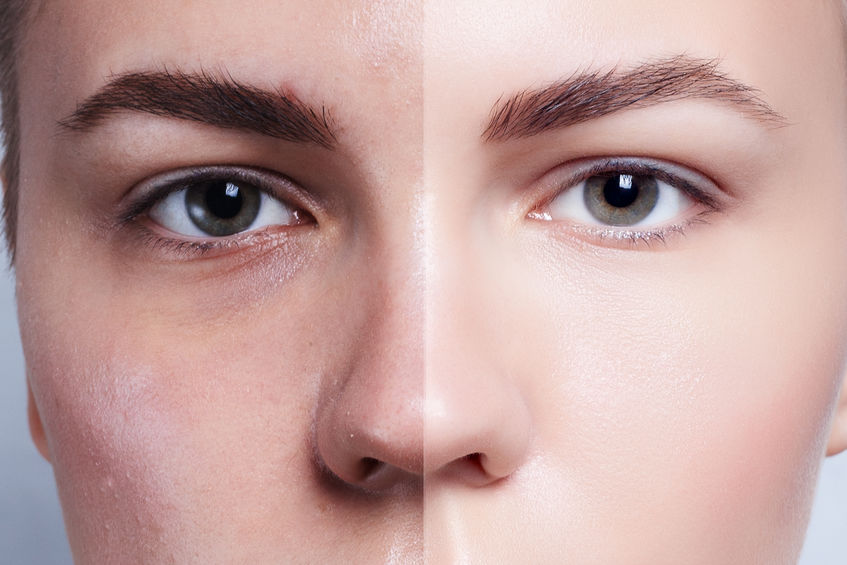Are those cute Snapchat filters actually making us feel worse about our bodies?
By Christine Wolkin
We live in a world where beauty standards are constantly evolving and now, with filters that can remove freckles, lengthen eyelashes and widen our eyes, edited selfies have become the norm.
Medical professionals are beginning to argue that those Snapchat filters that transform our faces into cute little woodland creatures with big eyes and smooth skin are hurting our self-image in bigger ways than we could ever imagine.
“A new phenomenon called ‘Snapchat dysmorphia’ has popped up, where patients are seeking out surgery to help them appear like the filtered version of themselves,” says Neelam Vashi, director of Ethnic Skin Center at BMC and Boston University School of Medicine.

Researchers at Boston University School of Medicine’s Department of Dermatology recently published an article in JAMA Facial Plastic Surgery, delving into how selfies and filters can negatively affect our body image and trigger body dysmorphia, a mental disorder that causes people to be extremely preoccupied with a perceived flaw in appearance that to others can’t be seen or appears minor.
People who have BDD tend to obsess over their appearance and body image, often checking the mirror, grooming or seeking reassurance for many hours a day.
“For someone with BDD, their entire life’s balance hangs on whether they look okay or whether they’ve camouflaged their perceived flaw appropriately,” says Tom Hildebrandt, PsyD, chief of the Division of Eating and Weight Disorders at Mount Sinai Health System in New York City.
Individuals that suffer from BDD will often go to great, and often unhealthy, lengths to hide their imperfections, including going under the knife.
In 2017, a survey by the American Academy of Facial Plastic and Reconstructive Surgery found that 55 percent of surgeons reported seeing patients who requested surgery to look better in selfies.

“Today’s generation can’t escape ‘the Truman effect’ because from birth they are born into an age of social platforms where their feelings of self-worth can be based purely on the number of likes and followers that they have, which is linked to how good they look or how great these images are,” British cosmetic doctor Tijion Esho, who coined the term “Snapchat dysmorphia” earlier this year in 2018.
The JAMA article goes on to state that this alarming trend presents an unattainable look and blurs the line of reality and fantasy for us.
“Filtered selfies can make people lose touch with reality, creating the expectation that we are supposed to look perfectly primped all the time,” says Vashi, who is also one of the authors of the article. “This can be especially harmful to teens and those with BDD and it is important for providers to understand the implications of social media on body image to better treat and counsel our patients.”
Looking at a photo of yourself and not seeing the same thing reflected in the mirror or an unedited photo can make people unhappy, says Vashi.
“It can bring feelings of sadness, and then if one really develops this disorder, that sadness clearly progresses to something that can be dangerous and alarming,” she said.
Approximately 80 percent of people that suffer from BBD suffer from suicidal thoughts and about a quarter of those individuals have attempted suicide, according to a 2007 study by Primary Psychiatry.
Vashi says one of the most powerful tools in helping fight “Snapchat dysmorphia” is awareness, either through cognitive behavioral therapy or by simply changing your negative thought patterns. Simply being aware of what’s real and what’s been heavily altered with photo manipulation tools can ground us back to reality and remind us of our own innate beauty.

While posing with these filters can be fun, it’s important not to lose sight of who you really are behind them. Photo editing has been around for hundreds of years now and while digital manipulation and our high standards for beauty aren’t likely to go away anytime soon, we are the ones that allow them to hold any power over ourselves.
If you’re looking to capture your true beauty, ditch the filters altogether. Put on a favorite article of clothing and head outside for some gorgeous natural lighting.

